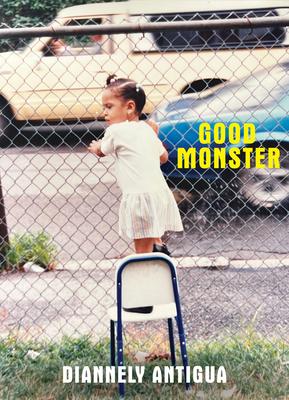Diannely Antigua's Good Monster grapples with the body as a site of chronic pain and trauma. Poignant and guttural, the collection "voyage[s] the land between crisis and hope," chronicling Antigua's reckoning with shame and her fallout with faith. As poems cage and cradle devastating truths--a stepfather's abusive touch, a mother's "soft harm"--the speaker's anxiety, depression, and boundless need become monstrous shadows. Here, poems dance on bars, speak in tongues, and cry in psych wards. When "God [becomes] a house [she] can't leave," language becomes the only currency left. We see the messiness of survival unfold through sestinas, a series of Sad Girl sonnets, and diary entries--an invented collage form using Antigua's personal journals. At the crux of despair, Antigua locates a resilient desire to find a love that will remain, to feel pleasure in an inhospitable body and, above all, to keep on living.

Diannely Antigua's Good Monster grapples with the body as a site of chronic pain and trauma. Poignant and guttural, the collection "voyage[s] the land between crisis and hope," chronicling Antigua's reckoning with shame and her fallout with faith. As poems cage and cradle devastating truths--a stepfather's abusive touch, a mother's "soft harm"--the speaker's anxiety, depression, and boundless need become monstrous shadows. Here, poems dance on bars, speak in tongues, and cry in psych wards. When "God [becomes] a house [she] can't leave," language becomes the only currency left. We see the messiness of survival unfold through sestinas, a series of Sad Girl sonnets, and diary entries--an invented collage form using Antigua's personal journals. At the crux of despair, Antigua locates a resilient desire to find a love that will remain, to feel pleasure in an inhospitable body and, above all, to keep on living.